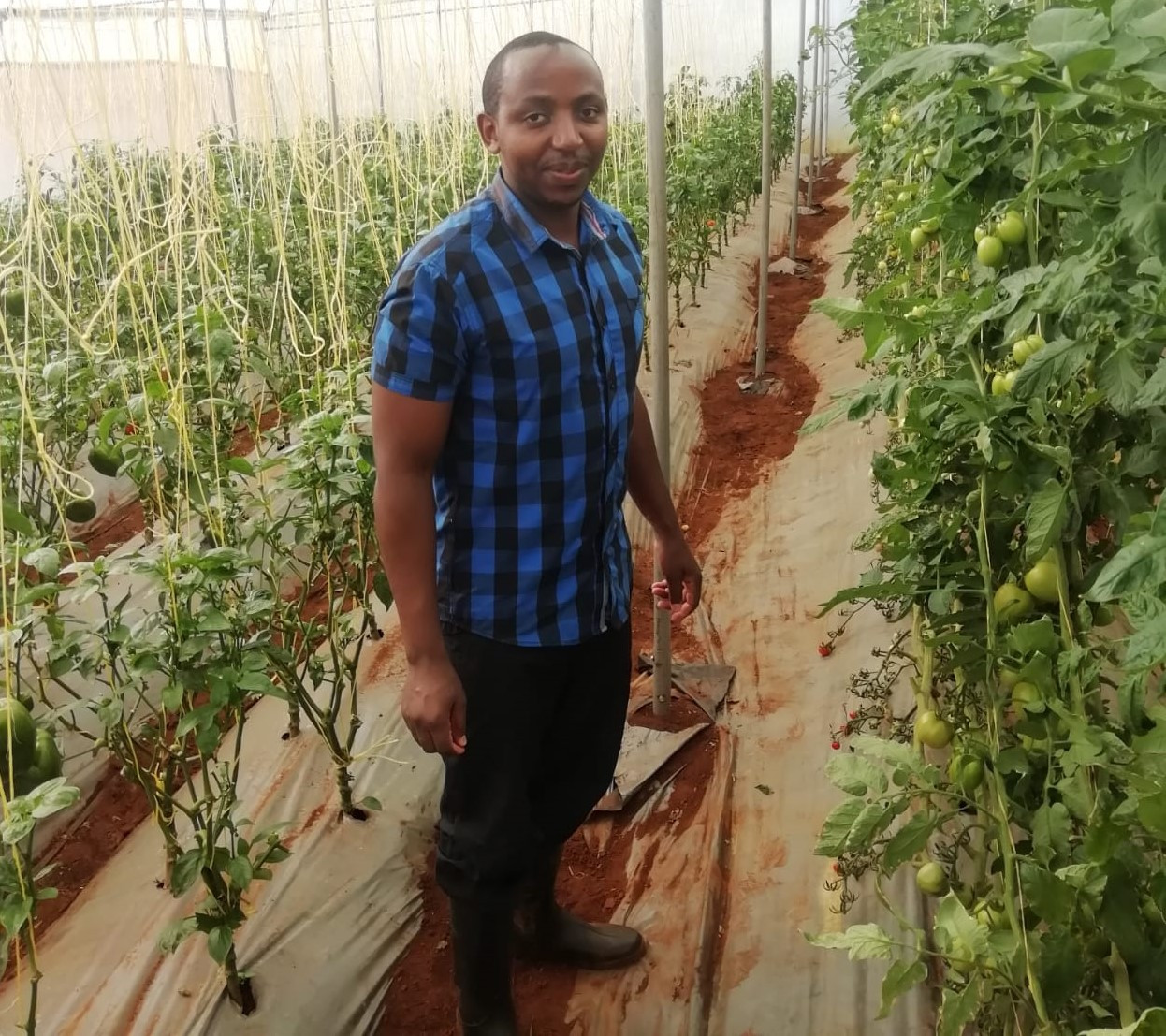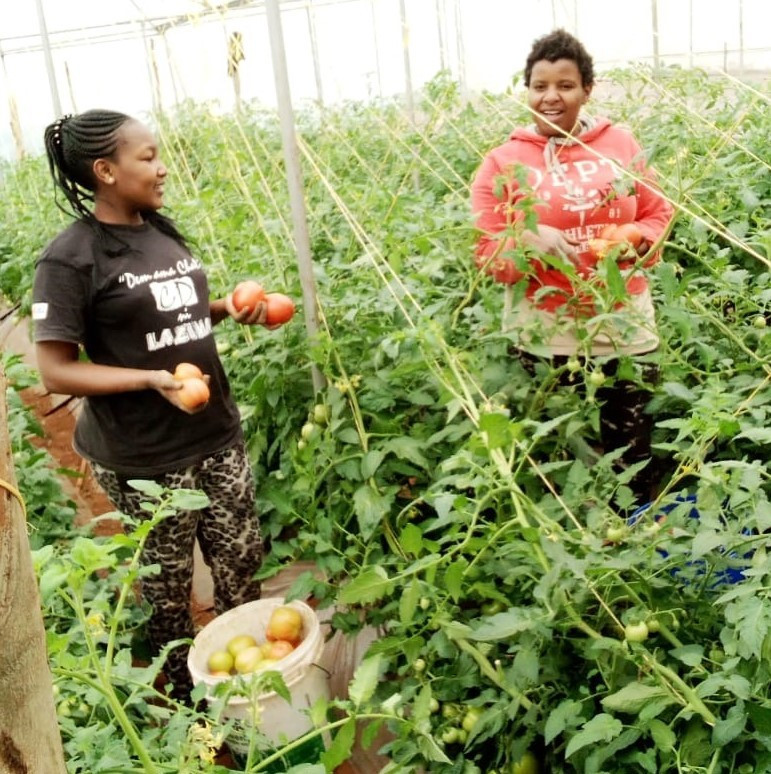The two white greenhouses on the farm in Ndeiya, Limuru in Kiambu look like any other, until one gets inside.
Several rows - a metre apart - of tall tomato plants with tens of green fruits dangling from each create a beautiful spectacle.
The crops grown on beds are mulched with white polythene bags and supported with strings from the top.
This is the handy work of Morris Kanyi, 27, who holds a degree in business and information technology from the Jomo Kenyatta of University of Agriculture and Technology and works as an ICT officer in a firm in Nairobi.
“I grew up in a farming family; which is what inspired me to love the venture because my parents were passionate about agribusiness,” says the third born in a family of five; three sisters and two brothers.
His parents farmed cabbages, potatoes, peas, beans and maize, which they sold the surplus. Thus, as he grew up, Kinyi says his desire to farm ballooned. “But I did not want to farm like my parents. So, I started greenhouse farming in August 2019. I did a lot of research before embarking on growing the tomatoes and capsicum in the structure,” he recounts.
Kinyi has a pair of tunnel greenhouses measuring 8m by 30 each, which sit on his quarter acre. One holds 1,000 tomato plants, 500 which he is already harvesting, and the other the same number of capsicum.
Why grow tomatoes and capsicums? “The two are always on demand. In every meal at home and in eateries and hotels, tomatoes and capsicum are used,” he says.
From the 500 plants he is currently harvesting, Kinyi is a happy man. “I sell my products to a firm in Limuru that has a tender to supply in big hotels. I also supply some of the produce at the local markets in the town. I have been selling a kilo of tomatoes at Sh90 and capsicum at Sh140.”
In a good season, he says he makes between Sh100,000 and Sh120,000. “This is good money considering that I do the farming as a side hustle,” says Kinyi, who has employed one worker and visits the farm every weekend though his sister helps him check on the farm during the week.
He recently embraced online marketing, starting with Mkulima Young, with the farming noting such marketplaces have a great potential to link buyers and sellers across the world.
“Online marketplaces have a wider coverage plus one is able to get instant feedback from the buyers and sellers.”
One of his biggest challenges is water and his future goal is to dig a small dam and install a liner on the floor to harvest rainwater for later use. He uses drip irrigation for better management of water since he can regulate the watering.
“I am also planning to increase the number of greenhouses. I would like to say that greenhouse farming is an extremely good venture; yes, it requires more capital but the rewards are worth it.”
One must maintain great standards of hygiene inside greenhouses for the crops to thrive, he notes, to avoid introducing diseases to the crops.
“The structure must remain clean, workers and visitors entering must disinfect their legs and hands and the greenhouse door must remain closed all the time,” he says.
He has plenty of advice to anyone who would like to venture into the greenhouse farming. “Have passion for farming and translate it into business; be ready to spent because the initial cost can be very high and give attention to the crops from day one up to when harvesting,” he offers.
You want to contact Kanyi? Find his contacts here
You want to join Mkulima Young Fraternity? Register here
Related feature


